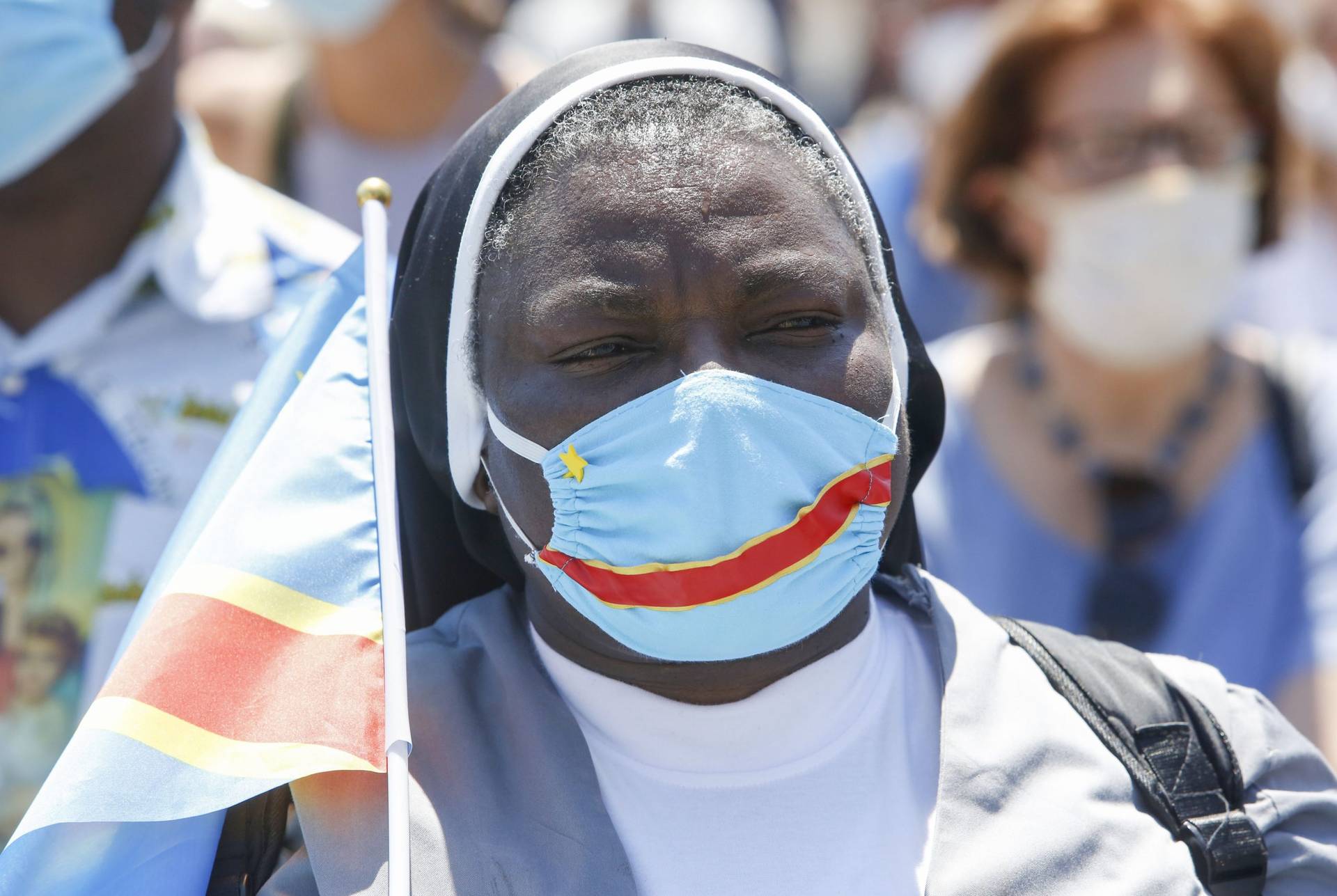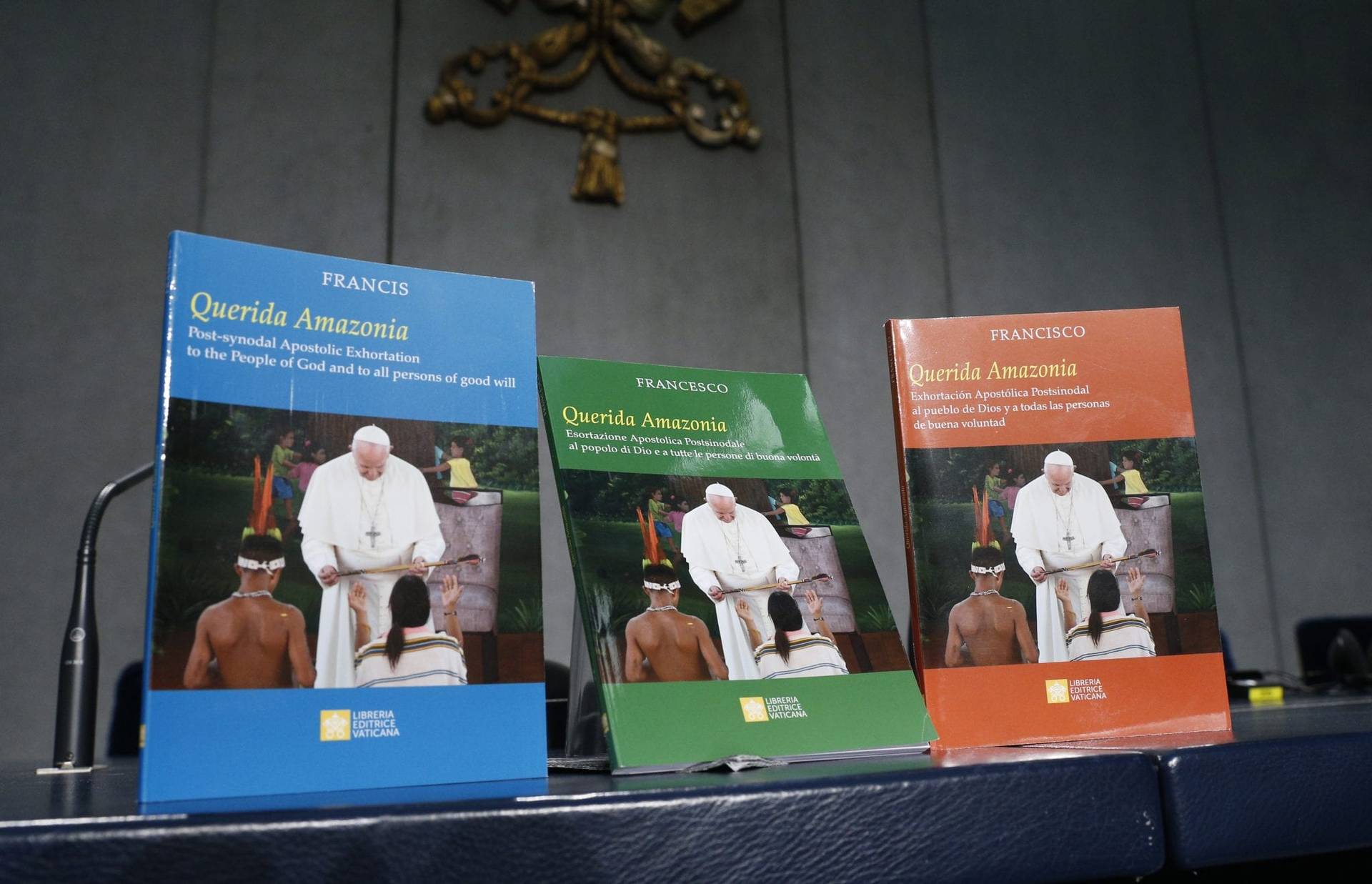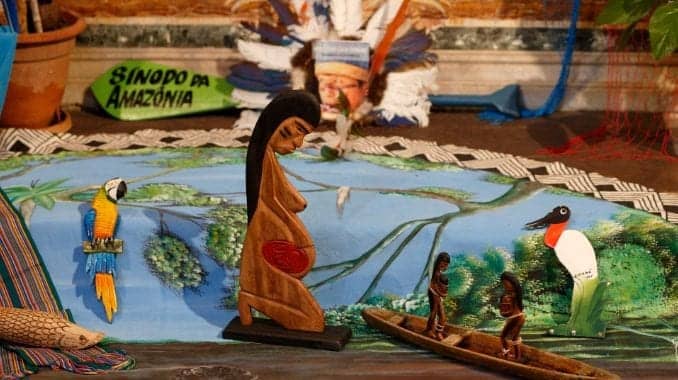ROME – Before it began, the Oct. 6-27 Synod of Bishops for the Amazon was expected to feature a strong ecological ethos, defense of the human rights of indigenous persons, and calls for the Church to do a better pastoral job of serving the region, including the possibility of a wider use of married priests.
So far, it’s delivering and then some.
Wednesday morning, for instance, brought insistence that Catholicism in the Amazon must act as a tribune for human rights, especially for indigenous peoples facing a real risk of genocide, and perhaps ought to establish an international ecclesial observatory.
Tuesday afternoon’s session, meanwhile, included a call to recognize and denounce “ecological sins” alongside the more traditional offenses cataloged in Church teaching.
According to a Vatican news bulletin, the hot-button issue of married priests also surfaced anew Wednesday morning during the synod’s fifth working session. It came up in the context of calls for deeper inculturation of Christianity in the Amazon and greater respect for native cultures and peoples, including in the celebration of the Church’s liturgies.
“An attentive discernment is needed on the part of bishops so that solutions won’t be ruled out a priori, including that of the ordination of married men,” the bulletin quoted certain unnamed participants as saying.
Retired Bishop Erwin Kräutler of Xingu, Brazil, backed the idea in Wednesday’s news briefing.
“There is no other option. The indigenous people don’t understand celibacy, they say that very openly and I see it,” Kräutler said.
“When I get to an indigenous village, the first thing they ask is, where is your wife?” he said. “They feel sorry for me, [they say] ‘Oh, poor man.’ They cannot understand this thing that a man is not married, he doesn’t have a woman taking care of the house,” he said.
Kräutler described a 2015 conversation with Pope Francis, in which he discussed access to the Eucharist.
“There are thousands and thousands of communities in the Amazon that don’t have the Eucharist expect for one, two, three times a year. These people are practically excluded from the Church. What we want is that our brothers and sisters don’t have just the table for the Word, but also for the Eucharist,” he said.
“In our opinion, celibacy is about the Eucharist,” Kräutler said. “The Lord said, ‘Do this in memory of me,’ not ‘just once in a while.’”
Noting that two-thirds of priestless communities in the Amazon are led by women, Kräutler also expressed support for the idea of female deacons and added that it’s come up in the synod as well.
Vatican communications czar Paolo Ruffini said it was stressed that permitting the ordination of so-called viri probati, meaning tested married men, “would not mean changing the law of the Church on celibacy,” but it would be a recognition that “like every human law, there are exceptions to reflect specific situations.”
The issue of greater roles for women also came up Wednesday, with at least one speaker floating the idea of a special, publicly recognized ministry for evangelization open to women.
“This isn’t so much a matter of creating something new but recognizing what already exists with greater force,” said Italian Jesuit Father Giacomo Costa, who’s delivering the daily news briefings along with Ruffini.
Other themes, according to the bulletin, included “a model of capitalist development that devours nature, the fires that are destroying the region, corruption, deforestation and illegal cultivation that both threatens human health and that of the entire planet.”
In keeping with its practice, the Vatican released only a generalized summary of the discussion without identifying individual speakers by name or counts of how many participants spoke on each topic.
Various speakers, according to that summary, emphasized the need for greater dialogue with native cultures and other churches and religions in the Amazon. A failure to be in conversation with local populations, some speakers suggested, have created a vacuum often filled by “neo-Pentecostal churches.”
Also on hand for Wednesday’s briefing was Carlos Alfonso Nobre, a Brazilian scientist who won the Nobel Prize in 2007 for an IPCC report on climate change. Nobre emphasized the gravity of the issues facing the Amazon.
“We’re near an irreversible circle of disappearance of the forest,” he said. “It would become a savanna that covers 60-70 percent of the Amazon region. We’re very close to a point of no return, with increasing deforestation and fires.”
“We may have no more than 15-20 years [to save it],” Nobre said, “the same amount of time we have to reduce greenhouse emissions not to run the risk of a huge climate crisis. This is the picture science is showing us in a very clear manner.”
“We want to play a part in the synod by bringing it current scientific knowledge and help open up solutions, so that the Amazon can continue to be the rainforest it’s been for 30 million years,” Nobre said. “A synod that embraces this scientific consensus gives it even greater credibility.”
Kräutler, who was born in Austria, delivered an impassioned denunciation of the construction of a massive new power plant in Belo Horizonte, Brazil, styling it is an example of development gone amuck.
“Both flora and people’s communities have been destroyed,” he said, saying the construction project accelerated deforestation and also prevents the migration of local fish, devastating traditional livelihoods.
“It was promoted abroad as an image of clean energy, but seeing everything that’s happened, I’d ask, what’s left? How can we continue to say it’s clean energy?”
Tuesday afternoon’s session, meanwhile, touched on a wide variety of fronts, including the rights of indigenous persons in the Amazon, the degradation of the environment, and “sustainable development that’s socially just and inclusive, combining scientific knowledge with traditional wisdom,” the bulletin said, summarizing the discussion with citing individual speakers by name.
“The future of the Amazon, which is a living reality and not a museum, is in our hands,” it said.
There was a proposal, according to the bulletin, “to deepen and disseminate a theological reading that includes, along with traditionally recognized sins, ‘ecological sins,’” the statement said.
The issue of priest shortages surfaced in the afternoon session, though apparently without any direct reference to the idea of ordaining the viri probati, meaning tested married men. Instead the accent was on the need to cultivate vocations, including the need for priests to carry the “odor of Christ” so they don’t “drive away the sheep they’re called to guide.”
The session, according to the bulletin, also heard diverse calls for greater support and closeness of the Amazon’s roughly 400 indigenous communities.
The Church, the bulletin said, is called “to become allied with movements at the base, to practice humble and welcome listening with regard to the Amazonian vision of the cosmos, and to understand the different meanings given to symbolic rituals by local cultures as opposed to the Western tradition.”
Perhaps anticipating reaction in more conservative and traditional quarters to the Amazon synod, Pope Francis Wednesday took a swipe at people who pose as defenders of the Church against some of its own members.
“The Risen One is one with all those who believe in him, [so] to strike a member of the Church is to strike Christ himself!” the pope said. “Also those who are ideologues because they want the ‘purity’ of the Church, in quote marks, are striking at Christ.”
Follow John Allen on Twitter: @JohnLAllenJr
Crux is dedicated to smart, wired and independent reporting on the Vatican and worldwide Catholic Church. That kind of reporting doesn’t come cheap, and we need your support. You can help Crux by giving a small amount monthly, or with a onetime gift. Please remember, Crux is a for-profit organization, so contributions are not tax-deductible.















